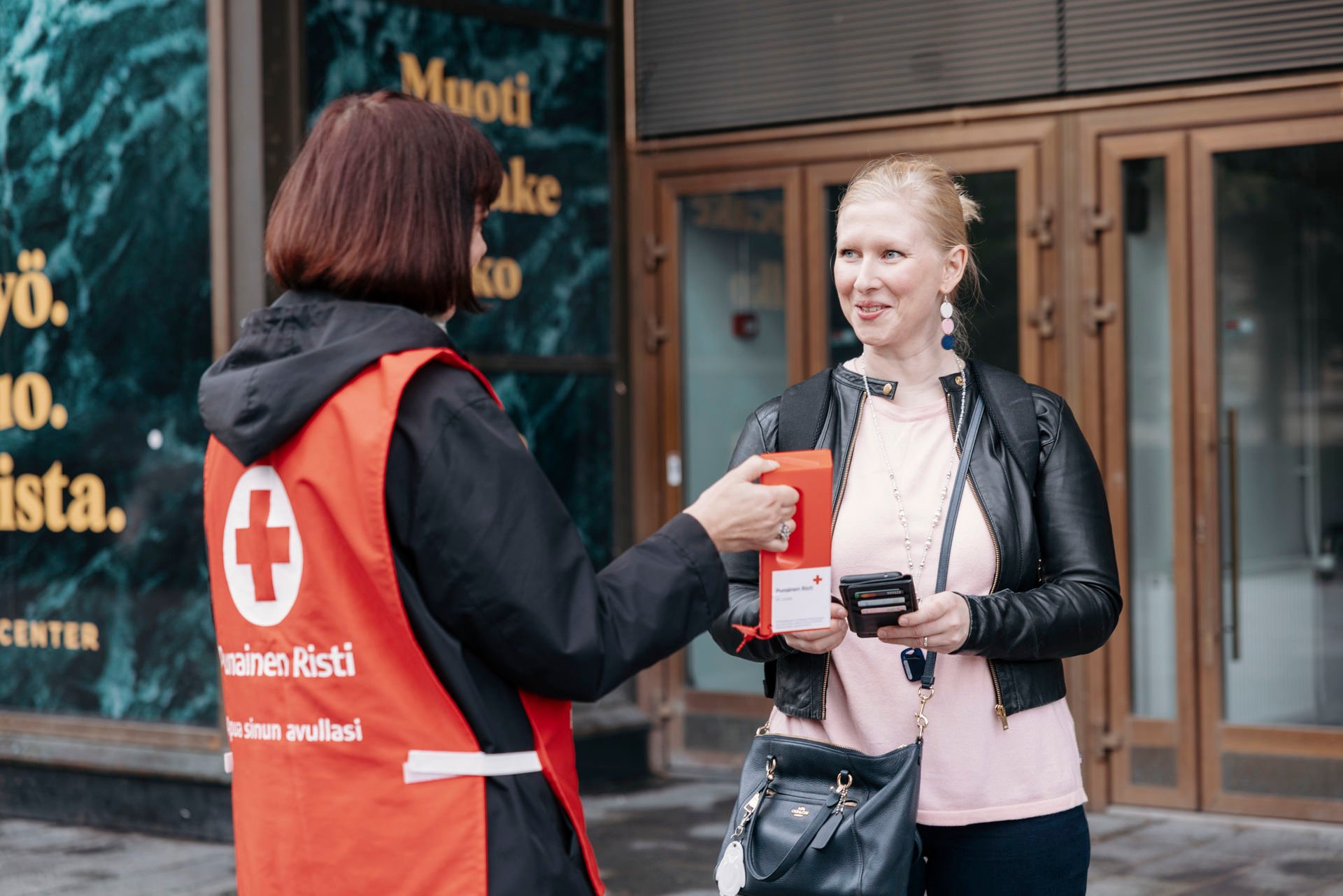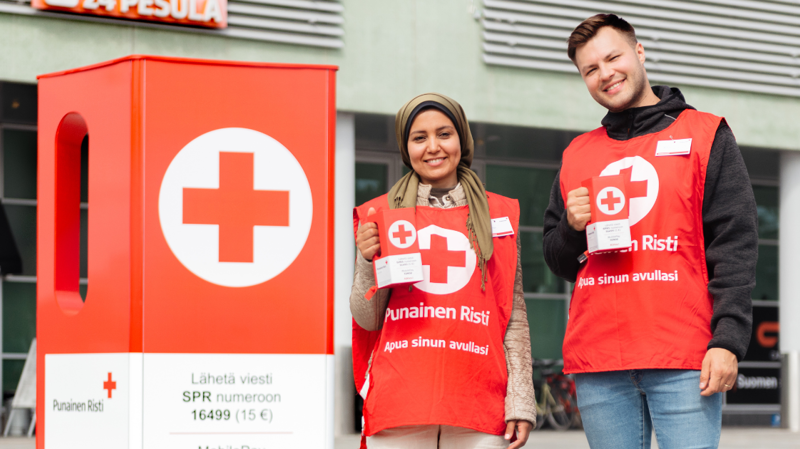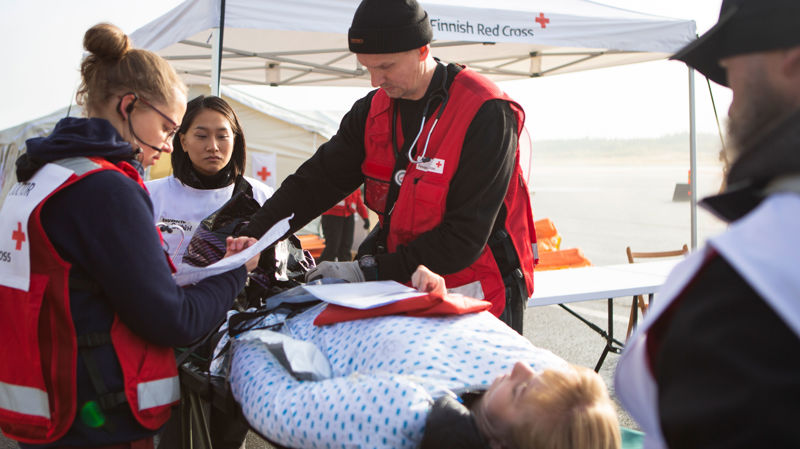The Hunger Day collection of the Finnish Red Cross will start this Thursday – the funds donated to the Disaster Relief Fund are used to help people in Finland and around the world

The Red Cross Hunger Day box collection starts all around Finland on Thursday 26 September and continues until Saturday 28 September. Online, Hunger Day donations are accepted until 12 October. Help has recently been needed in sudden crises in Finland and abroad, for example in Gaza, and in Ethiopia, where people are suffering from floods.
Hunger Day is about collecting donations for the Finnish Red Cross Disaster Relief Fund. In Finland, the funds of the Disaster Relief Fund are used to maintain the preparedness to help, e.g. by training volunteers for accidents and disruptions.
In recent weeks, the volunteers of the Finnish Red Cross have offered emotional support to eyewitnesses shocked by the shooting in Tampere, participated in the search for missing adolescents and organised material aid to people who lost their homes in fires in Kemi and Keuruu, among other measures. In spring, volunteers gave support to devastated people in front of Viertola School after the school shooting, and went around to the local shopping centres, youth houses and libraries to chat with people.
“The Disaster Relief Fund helps ensure that our trained volunteers will be available to give help and support quickly when something happens. Most of the aid is given in situations that do not make the headlines. Our volunteers are there to help people who have encountered a sudden crisis or accident somewhere in Finland, on average three times per week,” says Susanna Saarimaa, the head of the Finnish Red Cross’s preparedness unit.
In domestic crises, the volunteers of the Red Cross often help by supporting the work of authorities.
Disaster Relief Fund supports local healthcare services in the midst of conflicts and natural disasters
The funds of the Disaster Relief Fund are also used to help elsewhere in the world.
The humanitarian situation in Gaza, for example, is catastrophic and there is a dire need for help. The local healthcare system has collapsed and people’s living conditions have been extremely difficult for several months now.
“There is a dire shortage of food, clean water, healthcare, sanitary facilities and medication in Gaza. Right now, there is no safe place in Gaza. Life-threatening infectious diseases may start to spread. We have delivered personnel and hospital equipment to Gaza to the field hospital of the Red Cross. The International Committee of the Red Cross is in constant dialogue with the conflict parties on how humanitarian aid could be safely delivered to those who need it,” says Tiina Saarikoski, the director of international operations of the Finnish Red Cross.
The field hospital is part of the Finnish Red Cross’s more extensive relief operations to help those suffering from the Gaza–Israel conflict. The aid work is funded by the Finnish Ministry for Foreign Affairs and the Finnish Red Cross Disaster Relief Fund.
In addition to Gaza, Human health is also under threat elsewhere. The availability of potable water is insufficient in regions suffering from extreme weather phenomena. In Ethiopia, for example, the heavy rains that started in July and August have caused flooding and a landslide that had the highest death toll in Ethiopian history. The floods and landslides have also destroyed water systems, in addition to people’s homes.
“Infectious diseases threaten the health of the already underfed people, especially that of children. We have received reports of increasing cases of cholera from several regions in Ethiopia this year. Cholera is a major problem in the country, in particular in densely populated areas with poor hygienic conditions and low availability of healthcare services,” says Saarikoski.
The Disaster Relief Fund of the Finnish Red Cross will give €107,000 to help the people affected by flooding and landslides and €50,000 to aid the work of the Ethiopian Red Cross in battling cholera.
The funds collected to the Disaster Relief Fund during Hunger Day are not earmarked in advance. This allows the Red Cross to provide aid quickly exactly where needed.

Volunteer on Hunger Day
